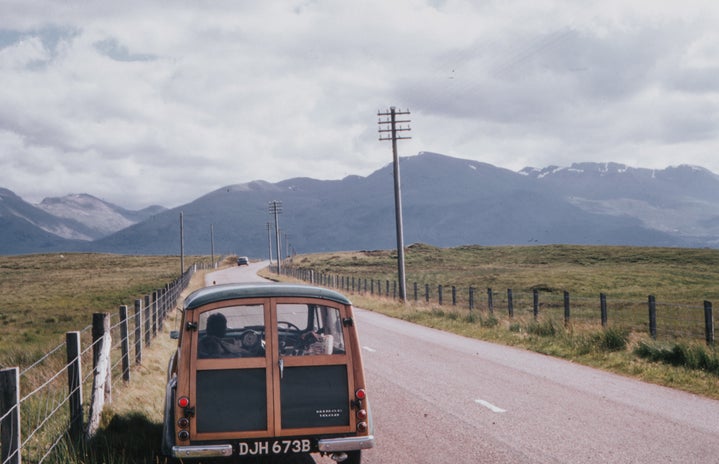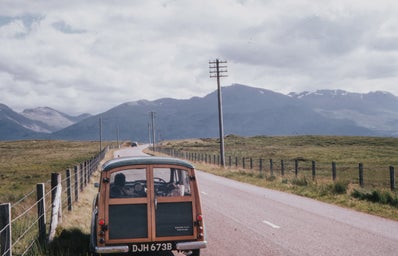Nomadland is one of the quietest films I have ever watched in the cinema, and arguably, was a pretty existential choice for someone who has just finished their degree and doesn’t know what to do with their life. That being said, director Chloé Zhao’s third feature is achieving success after success (picking up awards at the Golden Globes, the Baftas, and then, of course, Best Picture at the Oscars), and it’s easy to see why.
Based loosely on Jessica Brader’s nonfiction book, Nomadland: Surviving America in the Twenty-First Century, Nomadland follows the phenomenon of an American generation whose lives were destroyed by the 2008 financial crash, finding themselves roaming the country in camper vans and RVs whilst in their 60s and 70s. They undergo intense physical labour doing physical work in exchange for parking and basic wage (one of the largest employers in this field is Amazon, and I would have loved to see this explored further in the film). Frances McDormand (one of the two major professional acting performances in the film), stars as Fern, a widow and former teacher who loses her home following the closing of the gypsum mine in Nevada. As a result, she acts as our window into this nomadic lifestyle, embracing life in her tatty van (nicknamed Vanguard), with all its highs and lows. McDormand’s performance is so nuanced and authentic that it’s almost difficult to believe she isn’t one of the real-life nomads employed by Zhao to create the powerful docu-fictional piece. Fern acts as gateway into this community – and most importantly, refuses sympathy at almost every turn. As she says to a former pupil who she runs into in the store: “I’m not homeless, I’m just houseless. Not the same thing, right?”.
Surrounding McDormand’s Fern is a community of real-life nomads (including Linda May and Charlene Swankie), who get the chance to tell their own stories, whilst being masterfully interwoven by Zhao into the fictional narrative. Fern even visits the real-life Rubber Tramp Rendezvous, the annual gathering of itinerants run by the nomad guru and author, Bob Wells, also played by himself. The moments in which the community interacts – the stories around the campfire of love and loss, Swankie’s incredible monologue describing the swallows that she wishes to see again, and the moments of real human interaction are where this film comes alive. In Zhao’s acceptance speech for Best Director, she quoted from the Three Character Classic: “People, at birth, are inherently good.” And that is the overwhelming feeling that Nomadland gives you.
Zhao’s direction, combined with masterful cinematography from Joshua James Richards, presents the nomadic lifestyle in all of its honesty – we see Fern battling freezing conditions, using a plastic bucket as a toilet and more often than not, being exceptionally lonely. The natural landscape should practically be classed as a character of its own, and gives a real sense of scale in which McDormand serves only as a single spot in the wilderness. But then comes the sense of community and love, and in most cases, the pride that many take from living this lifestyle. In one particularly emotional scene, Bob Wells introduces the phrase “See you down the road”, the mantra of the nomads and a less permanent way of saying goodbye.
There’s little to criticise with Nomadland, except to say that ultimately this film will not be for everyone. There is very little plot to the film and instead, it becomes a powerful vignette of moments between what feels like very real people. If nonstop action, and car chases are more your thing, maybe give this one a miss. But if you’re willing to commit to the understated and slightly existential quietness, Nomadland is worth the watch.
You can watch Nomadland in cinemas now, or on Disney Plus.


